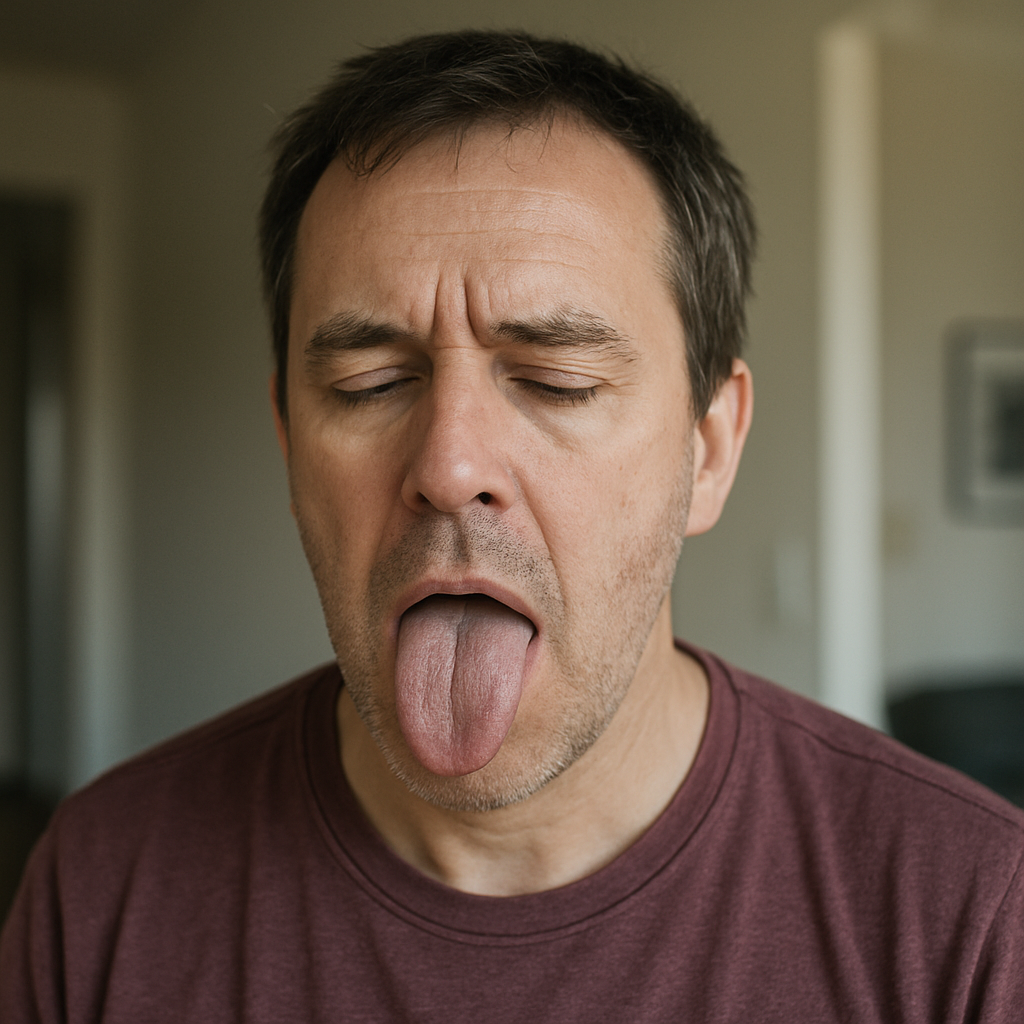Ask Ayurvedic doctor a question and get a consultation online on the problem of your concern in a free or paid mode. More than 2,000 experienced doctors work and wait for your questions on our site and help users to solve their health problems every day.
What Causes Dry Mouth and How to Treat It Naturally

Ever woken up wondering, why is my mouth so dry—even though you drank plenty of water before bed? Or maybe you're sitting in a meeting, lips sticking to your teeth, asking yourself, what causes dry mouth and how can I stop it? You're not alone. Millions of people deal with this frustrating and sometimes even painful condition. Whether it's dry mouth at night or a constant thirst that just won't go away, understanding the root cause is the first step toward effective relief.
In this article, we’ll break down what causes dry mouth, both during the day and while sleeping. We'll also explore natural remedies—some backed by Ayurveda and others by modern science—that can help restore your saliva flow and soothe that uncomfortable dryness. If you're wondering what causes extremely dry mouth while sleeping or how to treat it without relying on synthetic meds, you're in the right place.
Let’s dive into this sticky (literally) subject.
What Is Dry Mouth?
Dry mouth, medically known as xerostomia, happens when your salivary glands don’t produce enough saliva. Sounds simple, right? But saliva isn't just about keeping your mouth moist. It plays a critical role in digestion, maintaining oral health, and even keeping your breath fresh.
A dry mouth isn’t just annoying—it can be a signal that something's off inside your body. From dehydration to medication side effects, there are multiple causes of dry mouth, some more serious than others.

Don't wait or self medicate. Start chat with Doctor NOW
Causes of Dry Mouth: Daytime vs Nighttime
Interestingly, dry mouth doesn’t always show up the same way. Some people feel it only during the day, others battle with dry mouth at night or even wake up wondering what causes dry mouth while sleeping. The timing can give clues about the underlying trigger.
Causes of Sudden or Constant Dry Mouth
If dry mouth strikes out of nowhere, it's worth asking: what causes sudden dry mouth? Here are a few common culprits:
-
Dehydration: Not drinking enough fluids? Your body might not have enough water to produce saliva.
-
Mouth breathing: Whether due to congestion or habit, this can dry things out fast.
-
Certain foods or alcohol: Spicy or salty foods, as well as alcohol, can contribute.
-
Smoking: Tobacco reduces saliva production and irritates the salivary glands.
Constant dry mouth, on the other hand, often points to deeper issues. So if you’re wondering what causes constant dry mouth that just won’t go away, keep reading—we'll cover conditions and deficiencies next.

What Deficiency or Condition Causes Dry Mouth?
Medical Conditions and Medications
Some health problems directly affect saliva production. Sjögren’s syndrome, diabetes, and even Alzheimer’s disease are linked to dry mouth. But the most common cause? Medications.
Antidepressants, antihistamines, and blood pressure drugs often list “dry mouth” as a side effect. It’s one of those trade-offs that people don’t always expect—but notice fast.
Nutritional Deficiencies (e.g., Vitamin B12, Iron)
Believe it or not, what you’re lacking might be behind that parched feeling. What deficiency causes dry mouth? Often, it’s low vitamin B12, iron, or even zinc. These nutrients help maintain healthy nerve function and tissue health—including in your mouth.
A deficiency in any of them can cause severe dry mouth or a burning tongue sensation (which is, let’s be honest, the worst).
Mental Health, Stress, and Hormonal Imbalance
Ever felt your mouth go dry right before a big presentation? That's not your imagination. Stress, anxiety, and depression can affect your autonomic nervous system—the same system that controls saliva production. So yes, your mood could literally be what causes your mouth to be dry.
Chronic stress triggers a fight-or-flight response, reducing saliva flow. Over time, this may turn into a persistent condition. Hormonal imbalances, especially during menopause, pregnancy, or thyroid disorders, can also mess with your body’s moisture levels, causing dry mouth in the morning or night.
In fact, one overlooked aspect of what causes dry mouth at night while sleeping is hormonal fluctuation. Your body’s internal clock affects hormone release, and if that rhythm is off, your mouth might be one of the first to suffer.

Ayurvedic Explanation of Dry Mouth (Shushkata)
Ayurveda, the ancient Indian system of medicine, has a holistic take on dry mouth. Known as Shushkata, dryness in the mouth is seen as an imbalance in the body's natural energies, or doshas. Specifically, it’s often linked to an excess of the Vata dosha.
Vata Imbalance and Dryness in the Body
Vata is associated with dryness, movement, and air. When Vata is out of balance—think too much rushing around, poor sleep, erratic meals—it manifests in symptoms like dry skin, constipation, anxiety, and yes… a dry mouth.
From an Ayurvedic perspective, a Vata-dominant person or someone in a Vata-aggravating season (like autumn or winter) is more prone to symptoms like dry mouth at night.
So if you’ve been wondering what causes dry mouth while sleeping, especially when the weather is cold or your stress levels are up—Ayurveda might have an answer for you.
Dehydration, Poor Digestion, and Agni Disruption
Another important Ayurvedic concept is Agni, or digestive fire. If your Agni is weak—due to overeating, eating too fast, or eating the wrong types of food—it can create dryness throughout the body. The theory goes: if digestion isn’t optimal, nutrient absorption falters, and the tissues (including salivary glands) don’t get nourished.
Interestingly, this lines up with modern thinking around what deficiency causes dry mouth. Poor digestion can lead to nutrient loss, and that, in turn, contributes to symptoms like severe dry mouth or a constantly dry mouth even after drinking water.
Signs of Dosha Imbalance Linked to Dry Mouth
So, how do you know if your doshas are out of whack?
-
Dry lips and skin
-
Constipation
-
Insomnia or restless sleep
-
Racing thoughts
-
Cold hands and feet
-
Tension in the jaw or neck
If you're checking a few of these boxes along with dry mouth symptoms, it might be time to look into balancing your doshas through lifestyle, herbs, and daily routines. More on that coming next.

Natural and Ayurvedic Treatments for Dry Mouth
If you're still asking yourself, what causes dry mouth in the morning, and how can I fix it naturally? — this is the part you’ve been waiting for. Good news: there are effective, gentle, and often overlooked ways to restore moisture to your mouth without popping another pill.
Let’s dig into both Ayurvedic wisdom and natural remedies that actually work.
Dry Mouth Treatment with Herbal Remedies (Licorice, Amla, Triphala)
Ayurveda has long used herbs to support salivary flow and oral health. Some key players:
-
Licorice Root (Yashtimadhu): Moisturizing, anti-inflammatory, and soothing. You can chew on the dried root or use it in tea. But beware if you have high blood pressure—it might not be for you.
-
Amla (Indian Gooseberry): Rich in vitamin C, it rejuvenates tissues and strengthens immunity. Often used in Triphala, a classic three-fruit blend for digestion and detox.
-
Triphala: Supports digestion, which, as mentioned earlier, is key to nutrient absorption and moist tissue function.
These herbs help not just with the symptom, but also with the root of what causes your mouth to be dry in the first place.
Daily Routines, Oil Pulling, and Mouth Moisturizing Tips
Morning routines make a big difference in how you feel throughout the day. Here’s a few Ayurvedic habits worth adding to your mornings (or evenings):
-
Oil pulling: Swishing sesame or coconut oil in your mouth for 10–15 minutes before brushing. This helps remove toxins, supports oral health, and lubricates dry tissues.
-
Nasya oil: A few drops of herbal oil in each nostril can reduce mouth breathing, especially at night, which is a sneaky cause of dry mouth at night while sleeping.
-
Hydration timing: Sip warm water (not cold!) throughout the day. Warm fluids support Agni and encourage salivation.
Also, don’t overlook humidifiers—especially if you wake up wondering what causes dry mouth at night while sleeping. Dry bedroom air is a common and underestimated trigger.
Diet and Lifestyle Changes to Support Salivary Flow
Food and lifestyle have a massive impact on your mouth's moisture. Avoid:
-
Caffeine and alcohol — they dehydrate you fast.
-
Salty or spicy snacks — they irritate.
-
Smoking — you already know this, but yeah… it dries everything.
Instead, opt for:
-
Fresh fruits like watermelon, cucumber, and grapes
-
Cooked veggies and warm soups
-
Foods rich in healthy fats: ghee, olive oil, avocados
-
Mild herbs like fennel or coriander
Also: chew your food well. Sounds too basic, but it stimulates saliva, kickstarts digestion, and makes a real difference over time.
Conclusion
Dry mouth is more than just a minor irritation—it can signal imbalances in hydration, hormones, nutrition, digestion, or even mental health. Understanding what causes dry mouth, especially at night, gives you power to take control.
From Ayurvedic herbs like licorice and amla to simple rituals like oil pulling and mindful eating, there's a lot you can do that doesn’t involve synthetic meds or expensive treatments.
If your mouth constantly feels like the Sahara Desert, it’s time to stop ignoring it. Try one or two natural remedies and see how you feel in a week. You might be surprised by how fast things shift.
Dealing with dry mouth doesn’t have to be your “new normal.” Try one Ayurvedic remedy this week—maybe Triphala or oil pulling—and see how your body responds.
Found this helpful? Share it with someone who's always sipping water but still complaining about a dry mouth. They’ll thank you for it. 🙃
FAQs
Q: Why is my mouth so dry even when I drink water?
A: Water alone might not address deeper causes like nutritional deficiencies, stress, or side effects of medications. It’s also possible that poor absorption is preventing your body from hydrating tissues properly.
Q: Can dry mouth while sleeping be a sign of a serious condition?
A: Yes. Conditions like sleep apnea, diabetes, or Sjögren’s syndrome can cause extremely dry mouth while sleeping. If it persists, talk to a healthcare professional.
Q: What foods should I avoid if I have a dry mouth?
A: Avoid salty snacks, spicy dishes, dry crackers, alcohol, and caffeine. These can all worsen dryness and irritation.

